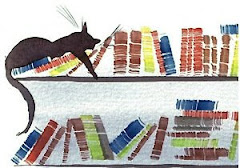John Grisham's latest novel, "The Appeal," was released on January 29, 2008, and is climbing fast the bestseller list. It tells the tale of a Supreme Court race in Mississippi, where a sitting justice is targeted for defeat by business interests. During the campaign, ads accuse the incumbent of being soft on crime and being too tough on business. The stakes are high: the election results could tip the balance of the court to the conservatives. On April 1, 2008, a group of business interests in Wisconsin was able to unseat Justice Louis Butler by launching a campaign of negative ads. A key ad accused Butler of having been the "deciding vote" in a Court decision that resulted "in the release of a sexual predator." But the offender was never released. Another ad from a conservative group, aired 526 times, accused Butler of overturning a murder conviction despite overwhelming evidence of guilt. Problem: the Court based its ruling on new DNA evidence that undercut the prosecution's case.
Looking at the facts, one has the feeling that Grisham's book was used as a campaign manual in Wisconsin: in "The Appeal," a direct-mail letter accused the incumbent of being responsible for setting a child molester free, while the molester escaped from a local jail and died long before the court campaign. In Wisconsin, as a watchdog group affiliated with the Annenberg School of Communication revealed here, "the sex offender remains in the same treatment facility where he was confined when his case went to the Supreme Court." The challenger supported by business interests, Mike Gableman, won 51% to 49%.
In most States, justices are elected, and the campaigns increasingly politicized. Who sits on the highest courts determines where billions of dollars go: to corporations and insurance companies or compensation for those who have been injured. No surprise that, when the stakes are so high, real-life conspirators get into action, even if that means taking a page from John Grisham.













